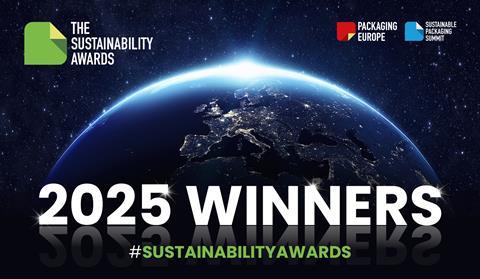
After much anticipation, the winners of the Sustainability Awards 2025 – the “Nobel prize” for sustainable packaging innovations – have been announced!
In no particular order, here are the winning entries.
Commercialized Awards
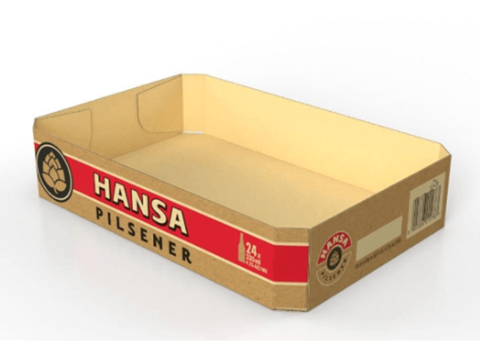
Starting with the Overall Winner, as well as the successful nominees in the Renewable Materials category – both trophies went to Zafree Papers and 100+ Accelerator for their recyclable, tree-free folding cartons, made using agricultural waste from Ugandan farmers.
By converting barley straw, sorgum, banana pseudostems, and other natural materials into unbleached virgin pulp and kraft liner, Zafree hopes to combat deforestation and achieve carbon neutrality. At the same time, it aims to reduce CO2 emissions and water consumption while financially supporting local farmers.
The paper is produced without chemical bleaching, and the leftover byproducts are repurposed into vermi-fertilizer and vermi tea.
Through the 100+ Accelerator programme, Zafree has packaged Hansa Beer’s products in tree-free corrugate board, and turned raw materials from Nile Breweries’ barley and sorghum farmers into folding cartons for the Nile Special and Eagle brands.
Expecting to scale up to a production capacity of 100 tons per day, Zafree plans to expand this development across further AB InBev markets and other sectors. In turn, it aspires to bring down the beverage sector’s environmental footprint by replacing conventional packaging materials.
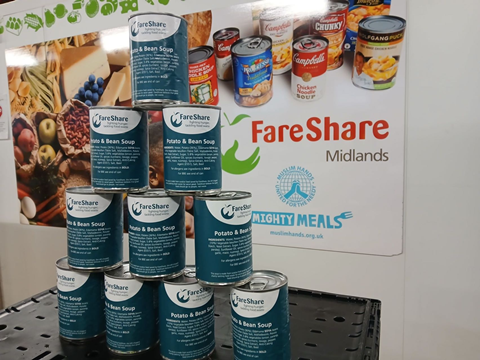
The Best Practice award went to Sonoco for its smart, ‘infinitely’ recyclable cans, applied to surplus food through food charity FareShare’s Food Life Extension (FLEX) project. This initiative seeks to address food insecurity and waste by turning fresh products into long-lasting canned food for distribution to homeless shelters, school breakfast clubs, community cafés, and other services.
Sonoco’s long-lasting, protective cans are designed to prevent spoilage, extend product shelf life, and create a reliable stockpile of meals for vulnerable communities. Their light weight and durability streamline transportation while keeping the food intact.
Together, Sonoco and FareShare have packed 145,000 cans of food for distribution across over 8,000 UK charities. Not only is the FLEX project set to feed those in need, but it aims to counteract the environmental impacts of food waste.
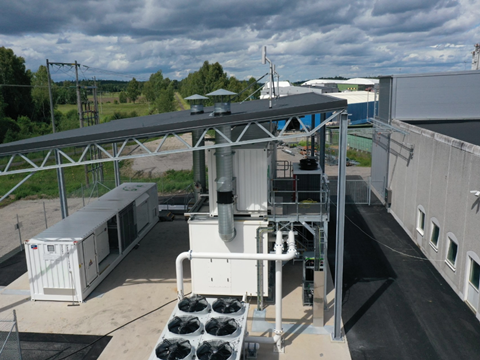
Next up was the Climate category, for which Ardagh Glass Packaging received the coveted prize. After building a hydrogen electrolyzer on-site at its Limmared facility, it has progressed to the commercial-scale production of glass bottles for a leading global spirits brand.
The electrolyzer uses renewable electricity to split water into green hydrogen and oxygen; the hydrogen is then fed into the energy mix to power the furnace.
Ardagh’s ambition is to replace over 18% of the natural gas used to power the furnace with a continuous supply of green hydrogen. So far, it uses LCA parameters to calculate that the electrolyzer cuts each bottle’s carbon content by over 14%, equating to 21g of CO2 saved per 70cl bottle and 27g saved per 1L bottle.
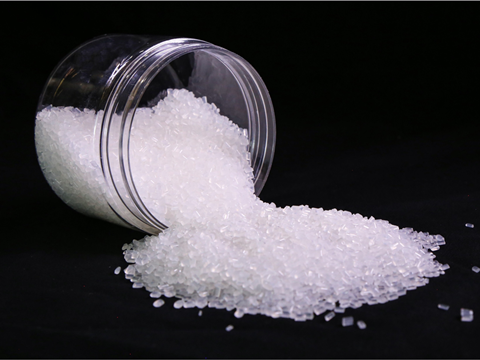
Procter & Gamble took home the Driving the Circular Economy award for VersoVita, its solvent-based dissolution recycling technology. This is used to clean complex, hard-to-recycle polypropylene and polyethylene packaging, generating near-virgin-quality plastics while lowering CO2 emissions.
The technology uses a solvent to remove odours, print, dyes, and other contaminants from melted feedstock flakes. The resultant polymer is polished and broken down into pellets for further use, with a Letter of No Objection from the FDA approving their use in food packaging.
Since the pellets are clear or slightly opaque, they can be used in light-coloured applications. The solvent can be reused multiple times, while contaminants can also be recycled into other products.
P&G has licensed VersoVita to PureCycle and it is currently in use at a commercial plant. The facility aims to produce up to 49,000 tons of recycled polypropylene annually.
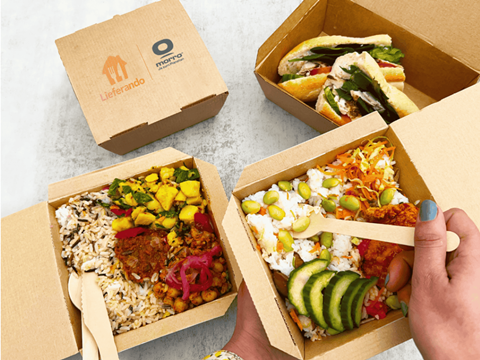
Xampla and Just Eat Takeaway were the winners in the E-Commerce category for their Morro Food To Go box – a corrugated takeaway package utilizing Xampla’s plant-based, biodegradable and home-compostable coating.
Manufactured by Huhtamaki, the box itself utilizes FSC-certified kraft corrugated cardboard. While the Morro coating supplies grease, oxygen, and water barrier properties, it streamlines recyclability by avoiding plastics and chemical modifications. According to Cepi’s 4evergreen Recyclability Evaluation Protocol, Morro does not disrupt recycling processes at standard mills.
The Food To Go Box is exempt from the EU’s Single-Use Plastics Directive and intends to unlock plastic-free foodservice solutions in the takeaway space, all without disrupting existing supply chains.
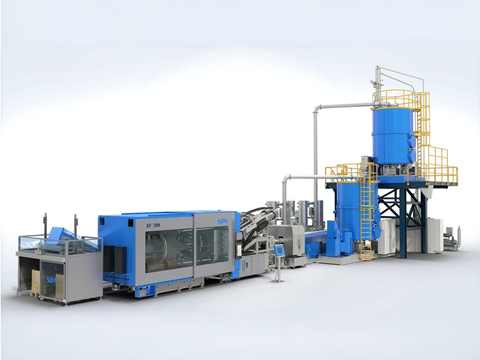
In the Machinery category, SIPA took the top spot for its direct flake-to-preform technology, XFORM Renew. This development converts washed PET flakes into high-quality preforms and avoids the energy-intensive pelletizing stage.
The technology lowers CO2 emissions by 80% compared to preforms made from virgin PET, while energy consumption is reduced by 30%. An LCA suggests that the technology reduces global warming potential by 79% compared to virgin PET preform production and 18% compared to rPET granule processes.
Additionally, the 200-cavity mould is set to increase output to 144,000 preforms an hour and keep pace with the growing demand for rPET content in plastic bottles.
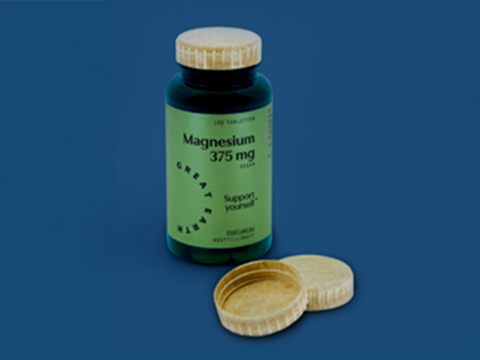
Blue Ocean Closures took home the Recyclable Packaging award for its fibre-based screw cap, which can be recycled in the paper stream.
Manufactured from biobased cellulose fibres, the 38mm cap is certified as recyclable in the paper waste stream. It can be recycled for up to 25 cycles without its fibres losing durability.
Alternatively, Blue Ocean Closures says the cap can biodegrade without leaving microplastics behind. Testing from a third-party laboratory that the cap achieves 90% aerobic biodegradability within three months in soil, and in less than two months in marine environments – an outcome hoped to counteract plastic cap pollution.
The closure has been commercialized on the nutraceutical market in collaboration with Great Earth of Scandinavia.
Pre-Commercialized Awards
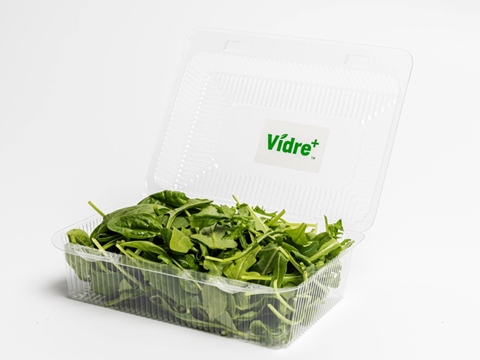
Avery Dennison’s Vidre+ smart label for fruits and vegetables took the top spot in the Pre-Commercialized Climate category. Any label stock can be enhanced with the patented Vidre+ coating to prevent premature spoilage and maintain a product’s quality, appearance, and nutritional value.
By gradually releasing the synthetic plant growth regulator 1-MCP, Vidre+ blocks ethylene receptors on the produce and slows the ripening process. It can be applied immediately after harvest, during transport, or in storage – and, depending on the crop type, it is set to extend shelf life by days or weeks.
This solution offers customizable protection for different pack sizes, crop varieties, and active ingredient dosages. It is compatible with a variety of packaging types, from cardboard boxes and bags to trays and clamshells.

Klingenberg came out on top in the Pre-Commercialized Driving the Circular Economy category for Nomadbox: a reusable corrugated cardboard shipping box that eliminates the need for adhesive tape.
The box features a patented Monozip closure mechanism, made from a wooden wedge and cut-outs in the cardboard. It can be opened in under two seconds, closed in five, and resealed over 100 times – and, unlike tape, this process does not damage the cardboard.
The Monozip format is also tamper-evident and user-friendly, keeping the box secure while enabling users to lock and flatten the box when empty. Since it is free from rubber-based adhesives, the box is easy to recycle at end-of-life; until then, it aims to maximize resource efficiency and avoid the degradation of its paper fibres.
This innovation aims to align with the Packaging and Packaging Waste Regulation’s push for a circular economy, pursuing high reuse rates without relying on plastic or adhesives. It also intends to lower the energy required for manufacturing and recycling processes and conserve resources like wood and water.
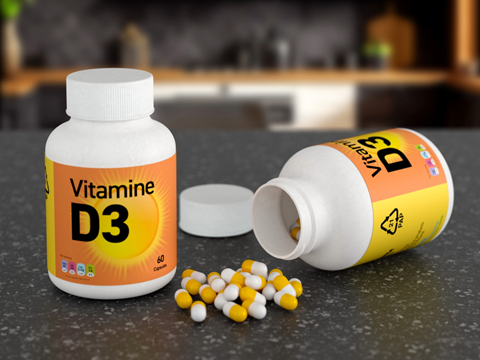
Our Pre-Commercialized Recyclable Packaging winner was Papacks with its moulded fibre bottle.
Plastic-free, industrially compostable and fully recyclable in existing paper streams, the Fiber Bottle is made from cellulose and moulded as one piece; this strengthens the bottle and streamlines end-of-life disposal.
The pack features an integrated screw thread to eliminate plastic caps, and customers can opt for a plant-based barrier coating from Papacks for oxygen and water vapour resistance.
It is designed to be lighter, more energy-efficient, and lower CO2 emissions by up to 90% compared to standard PET or HDPE – as well as align with the Single-Use Plastics Directive.
As stricter packaging laws come into force across the world, the Fiber Bottle intends to replace conventional plastic containers without compromising on product protection. Leibrock recommends that the bottle be used in the food, personal care, health, and pharmaceutical industries.

The winner of the Pre-Commercialized Renewables trophy was Ecohelix with its wood-based heat seal coating, WOODMER Seal. Derived from wood biomass in forestry side streams, the biopolymer has been developed to apply barrier functionalities without requiring fossil-based coating materials or generating high emissions.
The water-based formulation is compatible with standard printing or coating technologies and applies to various substrates, from paper and cardboard to wood, metals, and textiles. Its synergistic use of enzymes and membrane technology unlocks a safe, effective, and cost-effective process.
Balancing a strong, reliable heat seal with resistance against grease and water vapour, the paper is suitable for human contact and readily available in the EU.
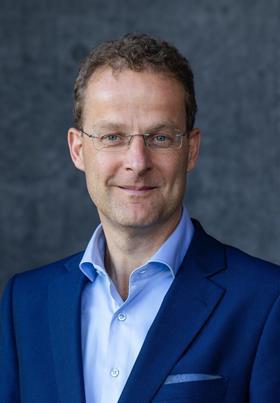
The recipient of this year’s Outstanding Contribution award goes to Emerald’s Fredric Petit!
As a partner and co-lead of the Sustainable Packaging Innovation Fund, Fredric is described by Tim Sykes as a “serial driver of innovation, who has helped guide multiple companies take the difficult journey from nascent technology to a scalable business.
“As a venture capitalist, he uses investment as an instrument to nurture solutions to the sustainability requirements of packaging. He has also used his position as an investment fund leader to pioneer co-innovation, bringing startups and corporates together to accelerate impacts.”
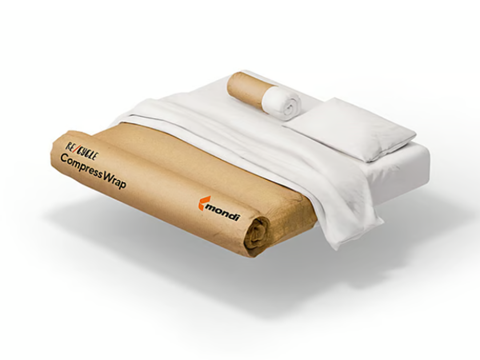
Last but by no means least, our Readers’ Award is not selected by the Sustainability Awards judging panel, but instead chosen by Packaging Europe subscribers. This year, you handed the trophy to Mondi for its recyclable paper wrapping for mattresses, re/cycle CompressWrap.
The kraft paper runs on existing lines and is heat-sealable for vacuum. Available in white and brown with good printability, the packaging offers moisture and water vapour resistance, high strength, and the necessary mechanical properties to withstand shipping and handling.
Mondi emphasizes that the pack is recyclable in the paper waste stream with a 95/5 paper-to-polymer ratio, and that the wrapping is PVDC free.














No comments yet